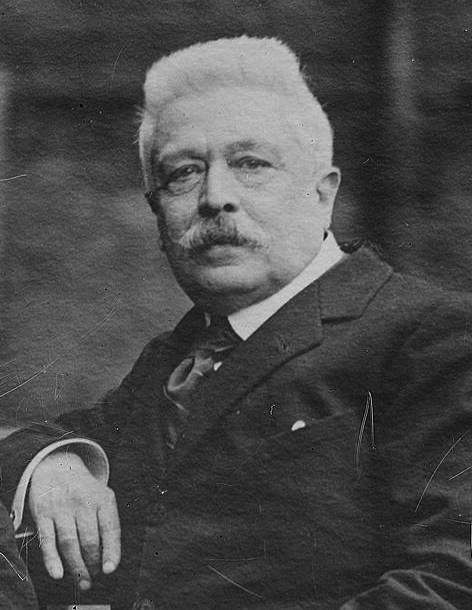 |
| Vittorio Emanuele Orlando |
Vittorio Emanuele Orlando was prime minister of Italy from 1917 to 1919 following the Italian army's defeat at Caporetto. Orlando was also head of his country's delegation to the Paris Peace Conference in 1919. Aside from his prominent political role, Orlando, who was himself a professor of law, is also renowned for his writings on judicial issues.
Orlando was born on May 19, 1860, in Palermo, Sicily, where he was also raised and educated. He made a name for himself through his writings on government administration and electoral reform. In 1897, he was elected to the chamber of deputies, the Italian federal parliament.
From 1903 to 1905, Orlando served as minister of education under King Vittorio Emanuele (Victor Emanuel) III. In 1907, Orlando was appointed minister of justice, a portfolio he retained until 1909. He was subsequently reappointed to the same ministry in November 1914, and he became minister of the interior in June 1916.
  |
Italy remained neutral during the initial phase of World War I. The country was formally aligned with Germany and Austria-Hungary; a discussion started over whether Italy should enter the war on the Entente's side. Orlando was a strong proponent of Italy's entrance into the war, which took place when the kingdom declared war on Austria-Hungary in late May 1915.
Always a strong supporter of Italy's participation in the war even after initial setbacks on the battlefield, Orlando was encouraged in his support of the Allies on the basis of secret promises made by the latter granting vast Italian territorial gains in the Mediterranean.
On October 30, 1917, Orlando became prime minister. It was a time of severe crisis following the disastrous defeat of the Italian troops at the Battle of Caporetto by the Austrians. With his appointment as prime minister having boosted national morale and having successfully rallied Italy to a renewed war effort, Orlando replaced the stubborn general Luigi Cadorna as chief of general staff with Armando Diaz. The following year saw Italian successes on the battlefield and the war's victorious conclusion in November.
Orlando served as prime minister until the end of the war and headed the Italian delegation at the Paris Peace Conference in 1919. However, he proved unable to obtain the expected and promised territorial concessions.
Orlando had a serious clash with his allies, especially President Woodrow Wilson of the United States. Orlando's claims to formerly Austrian territory collided with Wilson's policy of national self-determination.
Wilson even appealed over Orlando's head to the Italian people on the question of the Mediterranean port of Fiume/ Rijeka, which was requested by both Italy and Yugoslavia. Although that maneuver failed, Orlando dramatically left the conference in April 1919, returning only to sign the resultant treaty the following month.
His position rapidly undermined by his apparent inability to get concessions from the Allies and to secure Italian interests at the peace conference, Orlando resigned from office on June 19, 1919. He was succeeded by Francesco Nitti.
On December 2 of the same year, Orlando was elected president of the chamber of deputies. In the rising conflict between the new Fascist Party of Benito Mussolini and the workers' organizations, Orlando at first supported the Fascists.
He remained a supporter of Mussolini's government upon its inception at the end of 1922, although he changed his position two years later when the prominent Socialist leader Giacomo Matteotti fell victim to assassination. In 1925, Orlando resigned from parliament in protest against Fascist electoral fraud, serving thereafter in the constituent assembly.
Orlando remained in retirement until Mussolini's fall in July 1943. After the liberation of Rome in early June 1944, Orlando became a leading figure of the newly established Conservative Democratic Union. He was elected president of the constituent assembly in June 1946.
Orlando's objections to the peace treaty brought about his resignation in 1947. The following year saw his election to the new Italian senate. The same year he was also a candidate for the presidency of the republic, but he was defeated by Luigi Einaudi. He died on December 1, 1952.